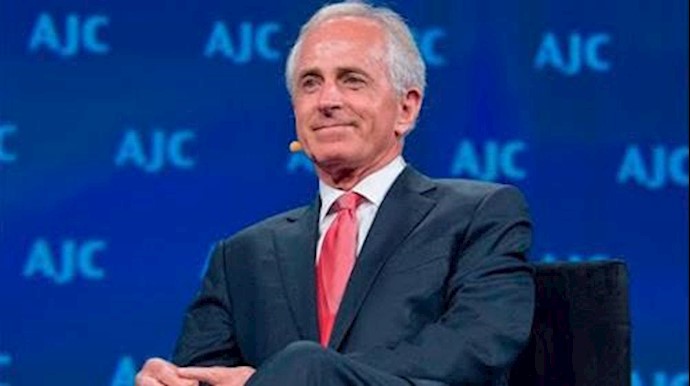WASHINGTON, June 7, 2016 – In a wide-ranging foreign policy discussion at the American Jewish Committee’s annual Global Forum in Washington yesterday, U.S. Senator Bob Corker (R-Tenn.), chairman of the Senate Foreign Relations Committee and a leading opponent of the administration’s nuclear deal with Iran, stressed the importance of U.S. global leadership and reiterated his opposition to the nuclear deal.
Highlights of Corker’s remarks are below. For more information about the event click here. Video footage is available here.
On the importance of U.S. global leadership
“There is no question…that the world is not the place that we would wish for it to be without U.S. leadership. It makes a difference. And that doesn’t mean that we have to have boots on the ground in every country in the world. It does mean that we’re constantly using every tool that we have to advocate for good things.”
On the Iran nuclear deal and the importance of reauthorizing the Iran Sanctions Act
“I was concerned that the Iran deal would become [the administration’s] de facto Middle East policy, and that is what is happening.”
“The Iran Sanctions Act, as you know, expires at the end of the year. We would like to extend more than just that. We want to extend sanctions against all of these other activities: [ballistic missile tests, human rights violations, etc.]…So, if the Iran Sanctions Act has expired, what is there to snapback to? Of course, the administration will say we can easily implement them ourselves. We just think we’re on stronger footing with Iran if they know the United States Congress has put this in place and those are the things that we will snapback to in the event the nuclear deal falls apart.”
On the administration’s decision in 2013 not to take military action against the Assad regime in Syria after the use of chemical weapons
“One of the worst months [in U.S. foreign policy], was at the end of August and the early part of September in 2013 when Bashar al Assad crossed the red line and we did not do what we said we were going to do.”
“The fact that we did not take action and…figuratively jumped in [Russian President Vladimir] Putin’s lap, that was the turning point.”
Source: US Senate Foreign Relations Comm.








